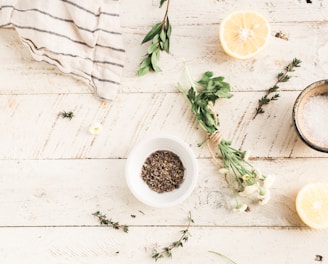Best Natural Remedies for Acne
3/12/20252 min read


Understanding Acne and Its Causes
Acne is a common skin condition that affects individuals of all ages, particularly adolescents and young adults. It arises when hair follicles become clogged with oil and dead skin cells, leading to the formation of pimples, blackheads, and cysts. While various treatments are available, many individuals seek natural remedies that can effectively address their acne without harsh chemicals.
1. Tea Tree Oil
One of the most renowned natural remedies for acne is tea tree oil. Its antimicrobial properties help to reduce inflammation and combat the bacteria that can worsen acne. Dilute tea tree oil with a carrier oil such as organic jojoba oil and dab it with a cotton swab on acne. Make sure to only apply a small amount and don’t use it more than twice a day.
2. Lavender Oil
Lavender has antibacterial and anti-inflammatory properties, helping to clear acne and prevent future breakouts. It also has soothing properties for skin irritations. Dilute lavender oil in a carrier oil (such as jojoba, grapeseed oil) and apply directly to the acne.
3. Jojoba Oil
Jojoba oil is a low comedogenic carrier oil and a natural moisturizer that can help regulate sebum production and is recommended for acne lesions because of its anti-inflammatory, anti-bacterial, wound-healing effects. Apply a small amount directly on acne or face in the morning and evening.
4. Rosemary Oil
Rosemary oil can help with acne by inhibiting the growth of acne-causing bacteria and regulates excess sebum production. As same as other essential oils, dilute rosemary oil in a carrier oil (such as jojoba, grapeseed oil) and apply it onto the blemishes.
5. Aloe Vera Gel
Aloe vera is another popular natural remedy known for its soothing and healing properties. Applying fresh aloe vera gel directly to the affected areas can help reduce acne redness and promote healing due to its anti-inflammatory and antiseptic properties.
6. Apple Cider Vinegar
Apple cider vinegar (ACV) is often cited as an effective remedy for various skin issues, including acne. It helps to balance the pH of the skin and has antibacterial properties. Dilute ACV with water and use it as a toner to help prevent breakouts.
7. Green Tea
The tannins in green tea have anti-inflammatory and antibacterial effects, which can help control acne breakouts and prevent scarring. Rich in antioxidants, green tea helps to reduce inflammation and reduce sebum secretion. Cooling used green tea bags against the skin can also soothe redness.
8. Oats
Oats are known for their anti-inflammatory and soothing properties, which can help calm redness and irritation caused by acne. When used as a mask or scrub, ground oatmeal can act as a gentle exfoliant, helping to remove dead skin cells and unclog pores, which can lead to improved skin texture and reduced acne.
9. Charcoal
Activated charcoal can be beneficial for acne-prone skin due to its oil-absorbing and pore-cleansing properties, helping to reduce oil buildup and improve skin clarity. Some people find that using charcoal masks or cleansers can help reduce the appearance of acne and improve overall skin complexion. Do note that charcoal can sometimes be too drying for sensitive skin. Use it 2-3 times per week.
10. Natural Clays
Clay is a mineral-rich substance that naturally occurs in some soils. Common types of clay used for skincare includes Kaolin, Bentonite, French green and Rhassoul clay. Used as a mask/cleanser, clay powders helps control oiliness and draw out impurities. As a scrub, it helps exfoliate the skin, leaving behind a smoother, more even skin tone and texture. Different clay have different properties with some better for sensitive skin such as Kaolin Clay and others better for acne treament like Bentonite.
